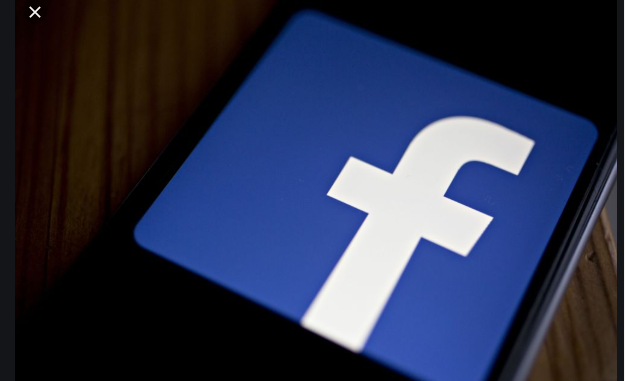
Facebook’s $5 billion fine by the Federal Trade Commission (FTC) for serial privacy abuses doesn’t go far enough. After the market received news of the fine, Facebook’s market value spiked $10 billion, and Chief Executive Officer (CEO) Mark Zuckerberg’s net worth rose $1 billion. Facebook’s leaders rejoiced. Why not? Facebook did not agree to wrongdoing, and the market price rose. FTC charged the firm with the crime because it “deceived users” that users could control the privacy of their personal information. This result was good for Facebook. The firm pays, not an executive or executives; now they can continue greed-induced policies, unconcerned. A $5 billion fine is not a significant penalty. It’s 23% of last year’s profit ($22 billion) and less than 10% of revenues.
Facebook’s $5 billion Fine Excuses Its Leaders
Who or what is Facebook? It doesn’t walk, talk, or think; so how did it commit this breach? Its senior executives, CEO Mark Zuckerberg, Chief Operating Officer (COO) Sheryl Sandberg and other leaders decided matters; they are the culprits. Thus, the law must hold them accountable, not the shell, the vessel, the inanimate corporation, Facebook. To fine the company and not its executives sends a terrible message that leaders exploit. They get a free pass when their greed and other acts lead to wrongs. And they gain until it’s stopped; then the “vehicle” pays. That’s akin to the law giving a drunk driver’s car a ticket while exonerating the driver.
Supreme Court Made Corporations People
To fine a company and excuse its leaders is part of a broken system that needs urgent repair. But that repair won’t happen because the Supreme Court’s 2010 ruling reaffirmed companies as people. I understand the rationale. It is easier to tax, sue, and fine companies than people. It’s harder for prosecutors to convict people in companies than their firms. Sometimes, it’s hard to prove who committed these crimes. So, it means we must work smarter and harder where evidence shows the firm’s widespread misconduct. The law must hold at least the CEO and the board chair to account.
The Supreme Court’s decision doesn’t prevent penalties for executives. It goes beyond the executive’s legal liability. But, because it’s easier to assign blame to the firm, leaders take dangerous risks and get a free ride when those risks cause crimes. So, leaders abuse people’s privacy, commit fraud, collect bonuses and investors pay for the misdeeds. Big Pharma is an excellent example that crime pays. But, their behavior hurt, and sometimes kill people. It must stop; prosecutors must sue the firm and its leaders.
Big Pharma Gets Away With Much
Corporations are not humans; they don’t decide. Where “a firm” harms people with products or services, the law must pursue a person or persons. It’s improper to charge the firm alone when the firm did not decide. The board chair, CEO and COO must account. Prosecutors did not accuse or jail one senior executive on Wall Street for the crimes that caused the Great Recession. I am not referring to bad decisions but corrupt practices. Wall Street executives will continue to ruin lives and make huge profits. That’s wrong! How can people commit crimes, collect big bonuses, and continue unscathed?
Pfizer, Wells Fargo, financial firms before 2008 are poster children for how people commit crimes but pay no penalties. If the law charges firms alone for wrongdoings, company leaders have a natural incentive to accept risks that might even take people’s lives. While executives don’t design products to kill, they know the vast profit potential from new “breakthrough” drugs, for instance, with no downside. That’s the Pfizer, Big Pharma way!
Pfizer’s Trangressions
Pfizer paid billions for its many misdeeds, yet, no executive got jail time. Several deaths linked to Pfizer’s heart valves concerned the Food and Drug Administration (FDA), but that did not stop Pfizer from distributing these valves. It took 300 deaths before Pfizer stopped production. By then, thousands of people had implants. By 1994, Pfizer spent around $200 million to settle related lawsuits.
Pfizer’s sins continued in the 2000s. In 2009, it agreed to pay a record $2.3 billion to settle criminal and civil liability for illegally promoting certain drugs. American Greed April 7, 2010, featured these crimes. Two of its subsidiaries pleaded guilty to a felony for misbranding Bextra with the intent to defraud or mislead. Pfizer’s corrupt practices continued. In 2016 it had two big events. First, it paid $784 million to settle underpaid Medicaid rebate charges. Second, it agreed to pay $486 million to settle a class-action securities lawsuit that it misled investors about Celebrex and Bextra’s safety. Then in May 2018, it agreed to pay $23.85 million to resolve assertions it infringed the False Claims Act by “paying kickbacks to Medicare patients… ” Pfizer had pricing, safety, marketing and other misdeeds and paid billions in fines. But, its executives escaped jail in each case.
Big Pharma Fined Billions But Nobody Jailed
The facts show greed and lack of integrity permeate Pfizer and Big Pharma’s culture. Can we trust Pfizer or other drug companies? Why does the FDA allow them to put the public at risk with their aggressive and coercive tactics? Do their lobbying activities shield them? The Pharmaceutical Research & Manufacturers of America spent $28 million to Pfizer’s $11.5 million lobbying Washington in 2018. And Pfizer spent $1 million on Trump’s inauguration gig. Are these amounts Pfizer’s insurance premiums?
It’s a disgrace that Big Pharma’s crimes hurt so many people while leaders and politicians gain. What will it take for Pfizer and others to behave in an ethical matter? The system condones their behavior. The issue isn’t their profit motive. I support firms making profits, but not while lying, cheating, and destroying lives.
Wells Fargo Fined $1 billion Nobody Jailed
The Consumer Financial Protection Bureau (CFPB) fined Wells Fargo $1 billion in 2018 for “conduct [that] caused and was likely to cause substantial injury to consumers.” Wells Fargo broke the law and hurt its clients. It over-charged mortgage interest rate-lock extensions and ran a mandatory insurance program to hike clients’ auto loans. The scheme pervaded the firm, so leaders knew. Did they approve it? Or did they ignore it? Either way, a person or persons must pay. But no senior person did; not the CEO or board member. This abuse followed the earlier 2016 one where the CFPB fined $185 million to settle “the widespread illegal practice of secretly opening unauthorized deposit and credit card accounts.” Again, no person jailed or fined, but they fired lower-level staff. Today, Wells Fargo seeks to rebuild its brand, but some employees see no systemic change.
Firms Should Keep Limited Liability But Hold Leaders To Account
When we treat firms as people, serious negatives result. First, it stokes leaders innate greed that’s obvious by Big Pharma’s actions which hurt the public. They break the law confident the law won’t punish them as they pocket hefty bonuses. Second, it drives lobbyists to bribe dishonest politicians to block needed laws to protect the public. Third, district attorneys don’t charge CEO’s whose “support” they might need to reelect them; so they penalize their firms instead. The umbrella effect is people decide, but their firms pay for their conscious decisions that hurt people and the environment. I repeat: I do not refer to bad choices, but illicit ones.
Business is an entity that offers services to clients. While employees present these services and goods, they take various risks; that’s normal. Business is the only wealth-creating entity in society. We must encourage firms to grow and create jobs. But we should recognize business as a wealth-creating vehicle driven by people. Companies should get no welfare benefits, pay no taxes, and pay fines only when the CEO, board members, or other senior executives do. The firm’s fine should send a message to the owners to remove the leadership and get them to return bonus earned for fraudulent activities. We must penalize a person or persons for the firm’s illegal acts. Does this idea remove investors’ limited liability? No, it sees people in firms who decide and who should go to jail and pay fines for their crimes.
Proposals To Resolve Negative Effects Of Treating Firms As People
I support a limited state’s role in business and the economy, few but applied rules, and leaders held liable for their illicit acts. Limited liability corporations’ (LLCs) present status is vital. But leaders decide, and the law must hold them to account for their crimes, not their firms alone. Firms must pay fines for harm to the environment and people. But in every case, a senior person or persons in the firm must pay in money and jail time.
After I studied several corporate crimes where only the firm paid a fine, I don’t know why leaders avoided jail time. That baffles me! People in those firms saw breaches, and leaders fired whistleblowers. And yet, Pfizer, Big Pharma, Wells Fargo, Facebook’s leaders saw their firms fined, and they kept their rewards. They got big bonuses from their decisions until the government stopped them. Sometimes, as Wells Fargo did, leaders blame and fire low-level staff for the harmful results.
Facebook’s $5 billion fine is a wake-up call. We must hold people accountable for their firms’ crimes. Here are summary proposals to do that:
Seven Steops To Fix The Problem
- Don’t break up big tech firms. Politicians want to break up big tech and other large firms. That’s a bad idea because it does not consider the real issue. If we split these companies, we will multiply the problem. What is the problem? Unaccountable boards and executives. So, we must enforce existing laws. We must carry out the principle that when we assign collective responsibility to a firm and charge it, we must punish the CEO and board, too. The CEO gets massive rewards for that job, and we must hold him and her to account for the firm’s crimes. They get the credit for the boom, so it’s only fair they accept the blame.
- Don’t assign blame to companies. That’s absurd; never fine a company alone. A person or persons, the CEO, board, and, or other senior leaders in the firm committed the wrong. Fine the company only after charging a person or persons. And only to penalize shareholders, who must remove the CEO and others, and recover damages from them.
- Compel executives to repay bonus from sales of drugs for non-FDA approved purposes and other illicit gain. Leaders would have less reason to push risky drug sales to make short-term gains. Thus, Pfizer’s executives should repay the bonus earned from Bextra’s massive profits, for instance. Wells Fargo’s leaders profited from illegal accounts and other offenses. So, they must repay their bonuses, too.
- Get rid of corporate taxes and corporate welfare. Firms should pay no taxes on their earnings. Tax people at their marginal rates on income and benefits gained from their firms. So, tax income, dividends, and exercised stock options at the same tax rate. The principle here is to tax people, not the wealth-creating vehicle, the company.
- Stop former Congressmen and women and White House staff from direct lobbying, or indirect lobbying in a law firm, for ten years after leaving office. Jail people who break this rule. Ban them from presenting and voting on laws that involve people and firms from whom they have or might benefit in cash or kind.
-
Ban advertising of pharmaceutical products unless the headline shows three things:
- FDA approves the drug for the advertised purpose.
- Side effects with the same prominence as benefits.
- Current issues linked to the drug. So, for Bextra, state reported problems.
-
Ask doctors to show in their reception and offices, their relation with drug companies. This relationship creates a conflict of interest that can affect drugs doctors dispense. It has in the past. So, let’s remove the temptation. Patients must know.
Conclusions
It is absurd to fine a company for wrongdoing and not charge a person in the firm. I have been part of several securities class-action lawsuits. Companies paid hefty fines for lying, but the CEO, board and others kept their jobs and the law did not fine or jail them. That’s not right! Somebody lied, that person must pay. No wonder the public has a wrong opinion of business.
Today, the left clamors for socialism and demonize business. They see corrupt executives get away with much and their firms reward them with big bucks. That’s not normal! The left doesn’t know small firms are the major job creators in the economy. And that Wall Street’s greedy rogues’ behavior does not reflect these small firms or the majority of firms. The left believes the government is the answer. But, the government is inept, wasteful, and part of the problem. Greedy, dishonest politicians protect rogue executives while they collect substantial campaign funds and bribes.
We need to rid business of people who commit crimes. And we need less government involvement in business with proper oversight and effective law enforcement when executives commit crimes. Business drives the economy. It creates jobs while governments destroy jobs with corporate taxes and dumb rules.
Proudly WWW.PONIREVO.COM



